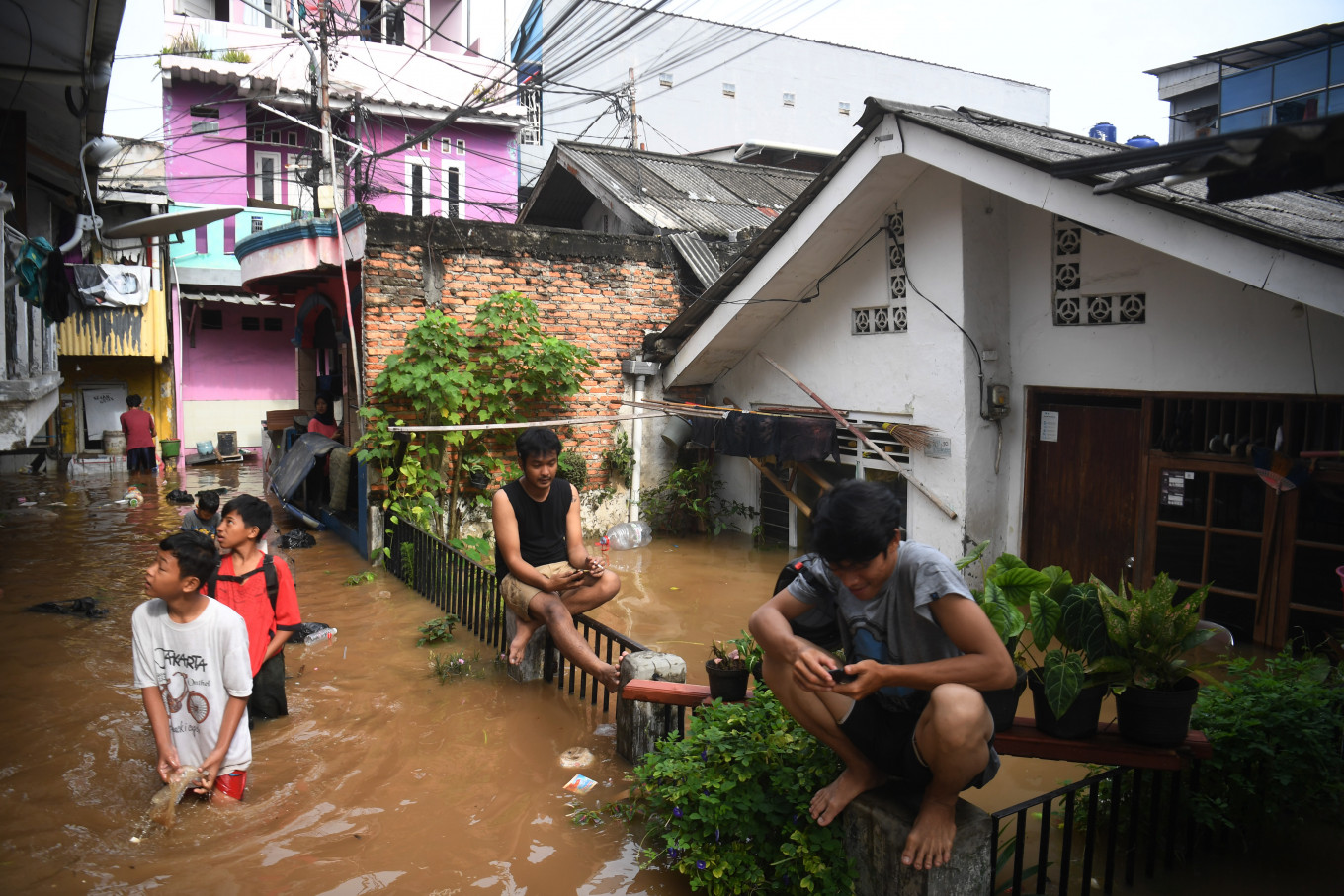Popular Reads
Top Results
Can't find what you're looking for?
View all search resultsPopular Reads
Top Results
Can't find what you're looking for?
View all search resultsBeyond celebrations
The common thread tying together Jakarta's perennial flooding, choking pollution and constant congestion is weak political will, and unless the local administration addresses this underlying factor starting now, these issues will continue to plague this historic city for the next half century.
Change text size
Gift Premium Articles
to Anyone
J
akarta turns 498 on Sunday and will be celebrating with fanfare: from cultural exhibitions at National Monument Square and a vibrant culinary showcase in the Glodok Chinatown area to the ever-anticipated Jakarta Fair in Kemayoran, dubbed the largest multiproduct expo in Southeast Asia.
But beyond the glittering lights and ceremonial pride, the city continues to grapple with unresolved foundational problems that have persisted for centuries.
Even before it was founded as Batavia by the Dutch East India Company as the colonial power center in what would become Indonesia, one issue has plagued the region to this day: flooding.
Repeated efforts such as widening rivers and regular dredging have been made over the years, but these measures are rarely sustained.
Policy approaches often shift with each administration, reducing flood control to a political performance rather than a long-term public commitment.
Implementation is equally flawed. Sensible solutions are frequently undermined by the absence of supporting frameworks. In many cases, resident relocation projects are poorly planned and done inhumanely.
Its struggles are not limited to flooding. The city’s notorious traffic congestion remains among the worst in the world. According to the 2024 Global Traffic Scorecard by INRIX, the average driver in Jakarta wastes 89 hours a year stuck in traffic, a significant jump of nearly 40 percent from 65 hours in 2023.
Jakarta’s worsening traffic congestion is largely driven by an increase in private vehicle ownership and use, a consequence of its limited and poorly connected public transportation system.
Official data show that last year, only 12 percent of Jakartans used public transportation. In contrast, private cars accounted for 21.5 percent of all trips, while motorcycles dominated at 56.3 percent. The number of private vehicles on the city’s streets has now reached 12 million, exceeding its population of around 11 million.
This heavy reliance on private transportation has also contributed significantly to air pollution.
According to the latest report by Vital Strategies, a global public health organization, Jakarta’s annual average concentration of fine particulate matter (PM 2.5) is consistently four to five times higher than the World Health Organization’s recommended limit.
As a result, Jakarta has the country’s highest rate of deaths linked to air pollution at around 36 per 100,000 people, compared to the national average of 20 per 100,000. Vehicle emissions are the largest contributor in the city center, accounting for up to 41 percent of pollutants, followed by coal combustion at 14 percent and construction activities at 13 percent.
The issue could actually be addressed by fully committing to existing policies, such as expanding the implementation of low-emission zones (LEZs), an approach proven effective in metropolises like London, Milan and Madrid to restrict the movement of high-emission vehicles.
Jakarta introduced an LEZ policy in 2021 in the historic Kota Tua (Old Town) area of West Jakarta, alongside efforts to expand pedestrian zones and improve accessibility for cyclists and walkers.
But their impact has been limited due to weak enforcement, especially of restrictions on high-polluting vehicles in the Old Town LEZ.
Governor Pramono Anung has set an ambitious goal to transform the capital into a “global city” and elevate its ranking among the top 20 in the next two decades, a great leap from its current rank of 74th out of 156 cities in Kearney’s Global Cities Index.
The vision is commendable. But to get there, Jakarta must move beyond performative gestures and begin seriously addressing its long-standing challenges. The city doesn’t want for studies or proposed urban solutions.
What it lacks, and has for far too long, is consistent political will. Anniversary celebrations might bring temporary pride, but a truly global city is built on clean air, flood-free streets and dignified living for all residents.
We hope Jakarta will thrive for another 500 years, but its future depends on the choices it makes today.










